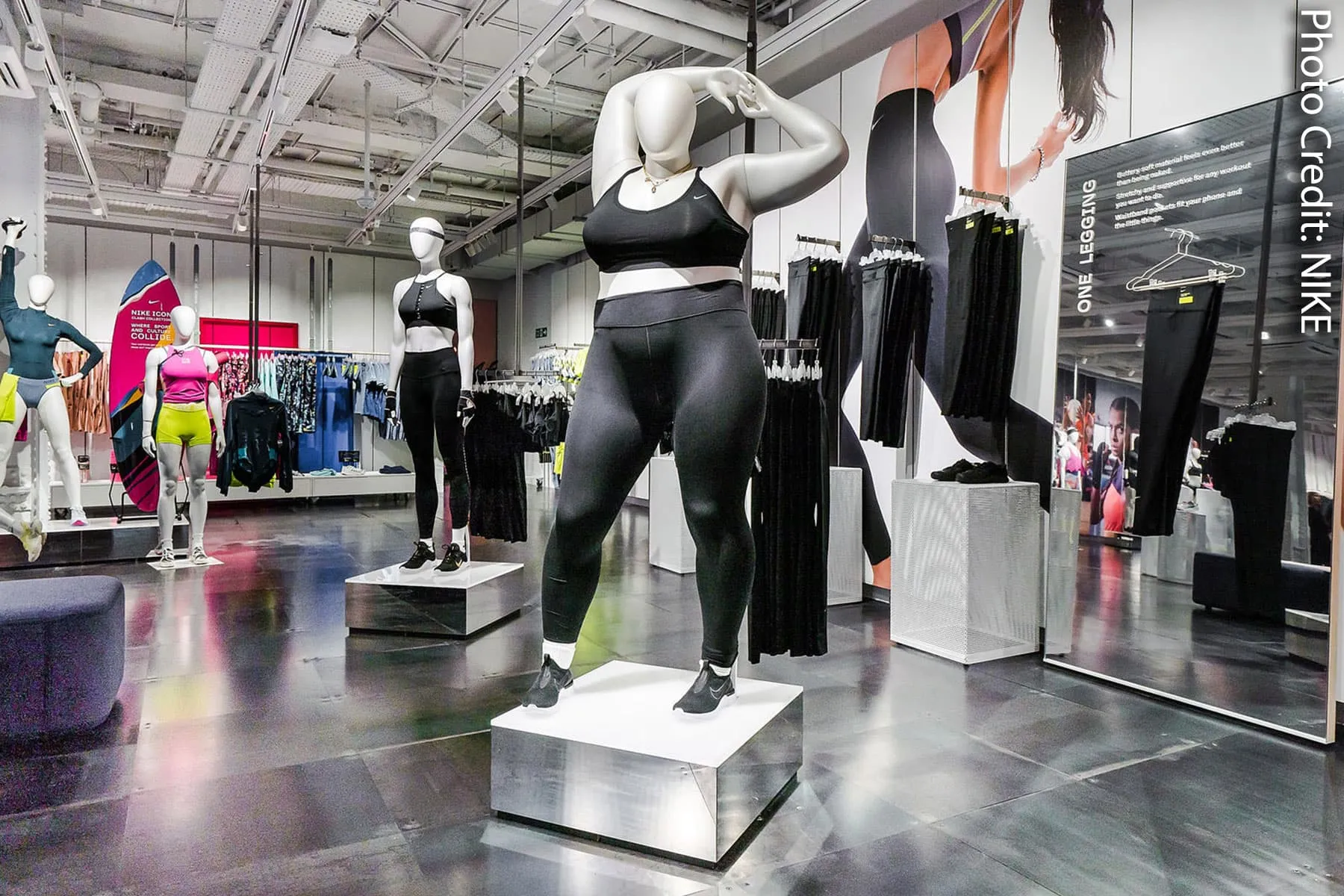The sportswear brand Nike introduced new, inclusive mannequins to their Niketown stores in London earlier this month that include representations of physically disabled and plus-sized athletes.
Other brands have come out with plus-sized mannequins and disabled mannequins in the last year, including Target, Nordstrom, and Old Navy.
Fans of the mannequins praised the brand on social media for its dedication to inclusivity.
Others have criticized the brand for its plus-sized mannequins. An opinion article from the U.K. news site TheTelegraph called out the mannequins for representing an unhealthy standard for women, and claimed that they are “selling women a dangerous lie.”
But studies have shown that traditional mannequins may show an unhealthy standard. According to a 2017 study from the National Center for Biotechnology Information, the average female mannequin body size is representative of a very underweight woman, and 100% of female mannequins represented an underweight body size.
“Scientific evidence suggests that obesity varies in its health. There are metabolically healthy overweight individuals. A one-size-fits-all image harms most of us that aren’t perfectly toned or have the athletic build,” said Brunilda Nazario, MD, lead medical director at WebMD.
https://img.lb.wbmdstatic.com/vim/live/webmd/consumer_assets/site_images/article_thumbnails/news/2019/06_2019/nike/1800x1200_nike.jpg
2024-03-12 14:40:22





